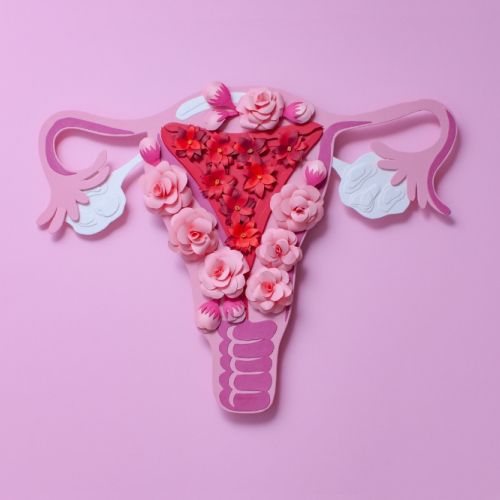Why Obesity Leads to Reproductive Health Issues

Good overall health, which includes maintaining a healthy weight, is an important factor in reproductive health. When you’re overweight or obese, it can affect reproductive health including your ability to conceive or to carry a pregnancy to term. Obesity refers to having a body mass index (BMI) of over 30. It’s a common problem during the reproductive years in both men and women, and there are several reasons why obesity leads to reproductive health issues.
The experts at the Center for Reproductive Health strive to help people understand the positive impact that making good lifestyle choices can have. Our team provides expert guidance to help people make small changes that can lead to better reproductive health.
Obesity in Women
Fertility problems are common in women who struggle with obesity. Reproductive function may be impaired because of excess body fat, which can lead to reduced pregnancy rates and an increased risk of miscarriage. Obesity can cause insulin resistance or polycystic ovary system, both of which can cause failure to produce an egg from an ovary each month, which is known as anovulation. Women who have anovulation often struggle with infertility.
In obese women who produce eggs, the quality of eggs produced may be reduced. In those who use IVF in an effort to conceive, chances of a live birth are lower than in women who are at a normal BMI. The rates of miscarriage are higher in women who are obese, possibly because of altered hormone levels that help to sustain pregnancy. Obesity can also lead to pregnancy complications such as preeclampsia and gestational diabetes.
Obesity in Men
Women aren’t the only ones whose reproductive health can be affected by being overweight or obese. Men who are obese may have erectile dysfunction or hormone imbalances. They may experience low testosterone levels and reduced sperm count, and some men’s semen may have no sperm at all. Sperm that’s produced may have poor motility, which means there’s a problem with the sperm’s ability to swim.
Testosterone is needed for the production of healthy, mature sperm. Low testosterone levels can affect sex drive and sperm production. In couples in which one or both partners are obese, assisted reproductive options such as IVF are often less successful than in couples who are at a healthy weight.
Improving Your Reproductive Health
The good news is that making lifestyle changes such as regular exercise and a healthy diet can reduce overall body fat. Losing 5-10% of your body weight can help lead to better menstrual cycle regularity and an improved chance of getting pregnant. Another thing to work on is controlling stress levels, since stress can lead to binging on junk food.
There are many factors that can contribute to infertility, and not all of them are within your control. Reaching a healthy weight can improve your overall health and can often be a good first step toward improved reproductive health. Reach out to the experts at the Center for Reproductive Health for more tips on improving your reproductive health.
Eliran Mor, MD
Reproductive Endocrinologist located in Encino, Valencia & West Hollywood, CA
FAQ
What does a reproductive endocrinologist and infertility specialist do?
Reproductive endocrinology and Infertility is a sub-specialty of Obstetrics and Gynecology. In addition to managing medical and surgical treatment of disorders of the female reproductive tract, reproductive endocrinologist and infertility (REI) specialists undergo additional years of training to provide fertility treatments using assisted reproductive technology (ART) such as in vitro fertilization.
Reproductive endocrinologists receive board certification by the American Board of Obstetrics and Gynecology in both Obstetrics and Gynecology and Reproductive Endocrinology and Infertility.
When should I see an REI specialist?
In general, patients should consider consulting with an REI specialist after one year of trying unsuccessfully to achieve pregnancy. The chance of conceiving every month is around 20%, therefore after a full year of trying approximately 15% of couples will still not have achieved a pregnancy.
However, if a woman is over the age of 35 it would be reasonable to see a fertility specialist earlier, typically after 6 months of trying.
Other candidates to seek earlier treatment are women who have irregular menses, endometriosis, fibroids, polycystic ovary syndrome (PCOS), women who have had 2 or more miscarriages, or problems with the fallopian tubes (prior ectopic pregnancy).
What are the reasons we are having trouble conceiving?
Approximately 1/3 of the time cause for infertility is a female factor, 1/3 of the time a male factor, and the remaining 1/3 a couples’ factor.
At CCRH, we emphasize the importance of establishing a correct diagnosis. Both partners undergo a comprehensive evaluation including a medical history and physical exam.
Furthremore, the woman’s ovarian reserve is assessed with a pelvic ultrasound and a hormonal profile. A hysterosalpingogram (HSG) will confirm fallopian tube patency and the uterine cavity is free of intracavitary lesions. A semen analysis is also obtained to evaluate for concentration, motility, and morphology of the sperm.
Additional work up is then individualized to direct the best possible treatment option for each couple.
What is IVF? What is the process like?
In vitro fertilization (IVF) is the process that involves fertilization of an egg outside of a woman’s body.
The process starts with fertility drugs prescribed to help stimulate egg development. In your natural cycle, your body is only able to grow one dominant egg, but with stimulation medication we can recruit multiple eggs to continue to grow. After about 8-10 days of stimulation, the eggs are surgically retrieved and then fertilized with sperm in a specialized laboratory. Fertilized eggs are then cultured under a strictly controlled environment within specialized incubators in the IVF laboratory for 3-5 days while they develop as embryos. Finally, embryos (or an embryo) are transferred into the uterine cavity for implantation.
Should I have IVF?
Before deciding if IVF is the right choice, it’s important to sit down with an REI specialist to discuss available treatment options. For some people, other methods such as fertility drugs, intrauterine insemination (IUI) may be the best first choice treatment. At CCRH, we believe each individual couple is unique and not everyone needs IVF.
Is the IVF procedure painful?
While not painful, the fertility medications may some side effects including headaches, hot flashes, mood swings, and bloating. The injection sites may also bruise.
Will IVF guarantee a baby?
Unfortunately, no. Many people think once they start IVF it’s a matter of time that they will be pregnant and have a baby. But according to national statistics per the Society of Assisted Reproduction (SART), on average 40% of assisted reproduction cycles achieve live births in women under age 35. The chances of success then continue to decrease with advancing age.
At CCRH, we employ only evidence-based interventions to ensure patient safety and optimal outcome. While we cannot guarantee a baby, we guarantee that you will receive the best, most advanced, personalized care to help you maximize your chance of a baby.
What is the success rate for IVF?
The average IVF success rate (success measured in live birth rate) using one’s own eggs begins to drop around age 35 and then rapidly after age 40. This is due to the decline in egg quantity and egg quality as a woman ages.
Our clinic’s success rate consistently beats the national average year after year.
Do insurance plans cover infertility treatment? How much does IVF cost?
Individual insurance plans often do not have any coverage for infertility treatments. If you have a group plan, you can call members services to see if they have coverage for infertility (including consultation/workup and IVF).
After your consultation with our REI specialist, one of our dedicated account managers with sit with you to go over the cost of treatment.




